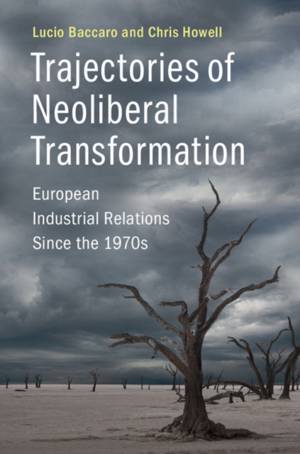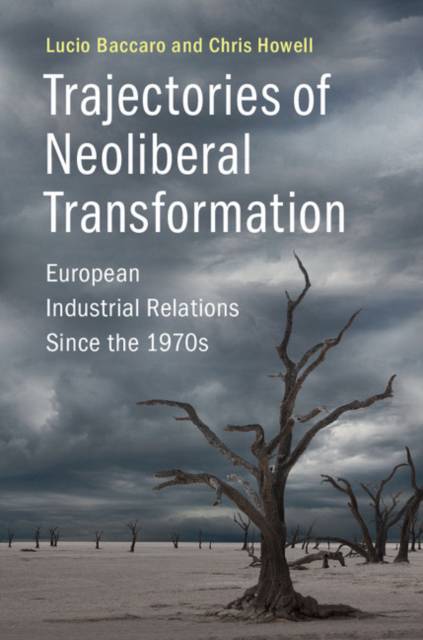
- Afhalen na 1 uur in een winkel met voorraad
- Gratis thuislevering in België vanaf € 30
- Ruim aanbod met 7 miljoen producten
- Afhalen na 1 uur in een winkel met voorraad
- Gratis thuislevering in België vanaf € 30
- Ruim aanbod met 7 miljoen producten
Zoeken
Trajectories of Neoliberal Transformation
European Industrial Relations Since the 1970s
Lucio Baccaro, Chris Howell
Paperback | Engels
€ 46,45
+ 92 punten
Uitvoering
Omschrijving
This book has both empirical and theoretical goals. The primary empirical goal is to examine the evolution of industrial relations in Western Europe from the end of the 1970s up to the present. Its purpose is to evaluate the extent to which liberalization has taken hold of European industrial relations and institutions through five detailed, chapter-length studies, each focusing on a different country and including quantitative analysis. The book offers a comprehensive description and analysis of what has happened to the institutions that regulate the labor market, as well as the relations between employers, unions, and states in Western Europe since the collapse of the long postwar boom. The primary theoretical goal of this book is to provide a critical examination of some of the central claims of comparative political economy, particularly those involving the role and resilience of national institutions in regulating and managing capitalist political economies.
Specificaties
Betrokkenen
- Auteur(s):
- Uitgeverij:
Inhoud
- Aantal bladzijden:
- 268
- Taal:
- Engels
Eigenschappen
- Productcode (EAN):
- 9781107603691
- Verschijningsdatum:
- 12/10/2017
- Uitvoering:
- Paperback
- Formaat:
- Trade paperback (VS)
- Afmetingen:
- 226 mm x 150 mm
- Gewicht:
- 385 g

Alleen bij Standaard Boekhandel
+ 92 punten op je klantenkaart van Standaard Boekhandel
Beoordelingen
We publiceren alleen reviews die voldoen aan de voorwaarden voor reviews. Bekijk onze voorwaarden voor reviews.







